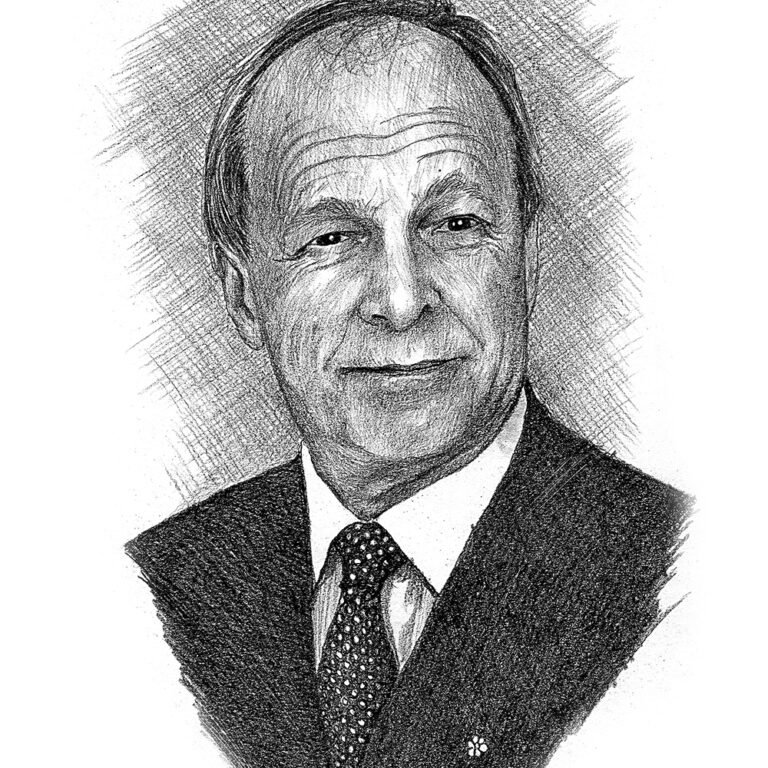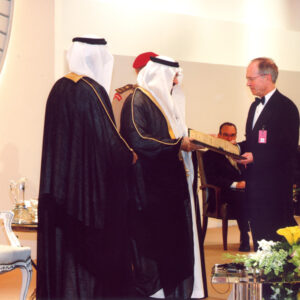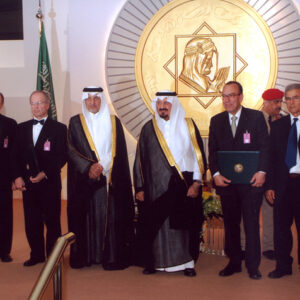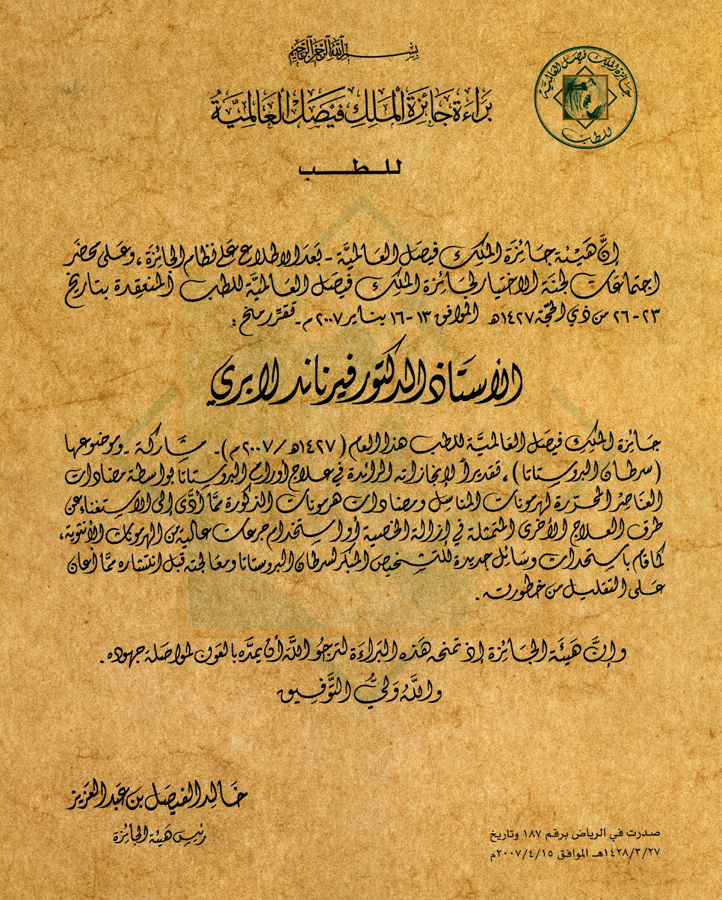

Professor Fernand Labrie
King Faisal Prize in Medicine 2007 Laureate
Topic: "Prostate Cancer "
My objective and passion have always been to search, as intensively as possible, for new knowledge in medicine

Fernand Labrie earned his B.A. from the Séminaire de Québec in 1957, his M.D. and from Laval University in 1962, and his PhD. (Endocrinology) from the same University in 1966. He completed postdoctoral studies at Sussex and Cambridge in Britain. He joined the Faculty of Medicine at Laval University as Assistant Professor in 1966, later becoming Associate Professor in 1969 and a full Professor in 1974.
He founded the first Molecular Endocrinology Research Laboratory in the world at Laval University in Quebec in 1969. He then became the Chairman of the Department of Molecular Endocrinology at the Center Hospitalier de l’Université Laval (CHUL) in 1972, a full time physician in the Department of Medicine during the same year, and a Research Director at the CHUL Research Center in 1982, where about 150 senior investigators, 450 graduate students and 600 members of research personnel have been working under his leadership. Labrie also chaired the Department of Physiology and Anatomy at Laval University Medical School for 12 years. He was also a former President of the Canadian Society of Endocrinology and Metabolism and the Canadian Society for Clinical Investigation and former Vice-President of the International Society of Neuroendocrinology. He was a Fellow of the Royal College of Physicians of Canada.
Professor Labrie was one of the most accomplished scholars in the international scientific community. He published more than 1000 scientific articles and was the most cited Canadian scientist among all disciplines in the world, his studies having been cited more than 40,000 times. His most important contribution to prostate cancer research was the advent of “reversible chemical castration” for the treatment of prostate cancer. This ground-breaking treatment strategy replaced orchiectomy (surgical removal of the testis) and the use of high doses of female hormones (estrogens), which were the standard treatment methods for prostate cancer, thus removing both the psychological disadvantage of orchiectomy and the cardiovascular complications of high estrogen doses, and thereby improving the patient’s quality of life. Another major contribution by Labrie was the development and clinical application of a new combined hormone therapy (combined androgen blockade) which can induce a complete cure of localized prostate cancer and extend a patient’s survival in metastatic cases. Professor Labrie and his group also pioneered the screening and early detection of prostate cancer. In short, Professor Labrie and his team brought a successful paradigm of prostate cancer treatment which is now helping hundreds of thousands of patients worldwide.
Professor Labrie’s outstanding contributions to molecular endocrinology and oncology were recognized by many awards and distinctions. In 1979, he was elected a Fellow of the Royal Society of Canada. In 1981, he was appointed Officer of the Order of Canada. In 1991, he was appointed Officer of the National Order of Quebec, and in 1999, he was awarded the prestigious Izaak Walton-Killam Memorial Prize of the Canada Council for Arts in 1999. He was also the recipient of the Medal of the College de France in 1984, the Queen’s Golden Jubilee Medal in 2002, and “Man of the Year” from the American Biographical Institute in 2005.
Professor Labrie was a member of around 70 professional associations and was invited on more than 470 occasions to present his work at national and international symposia and lectureships. He was also a member, associate member or corresponding member of the editorial boards of many leading scientific and medical journals.
This biography was written in the year the prize was awarded.
- He was appointed Professor Emeritus at Laval University in 2011.
- He received many awards and honors including:
- Scientific Career Award of the “Association des médecins de Langue Française du Canada” in 2007.
- Henry Friesen Award of the Canadian Society for Clinical Investigation/Royal College of Physicians and Surgeons of Canada in 2011.
- Hoffenberg International Medal by the Society for Endocrinology of the United Kingdom in 2013.
- Professor Fernand Labrie passed away in Québec on 17/1/2019.



